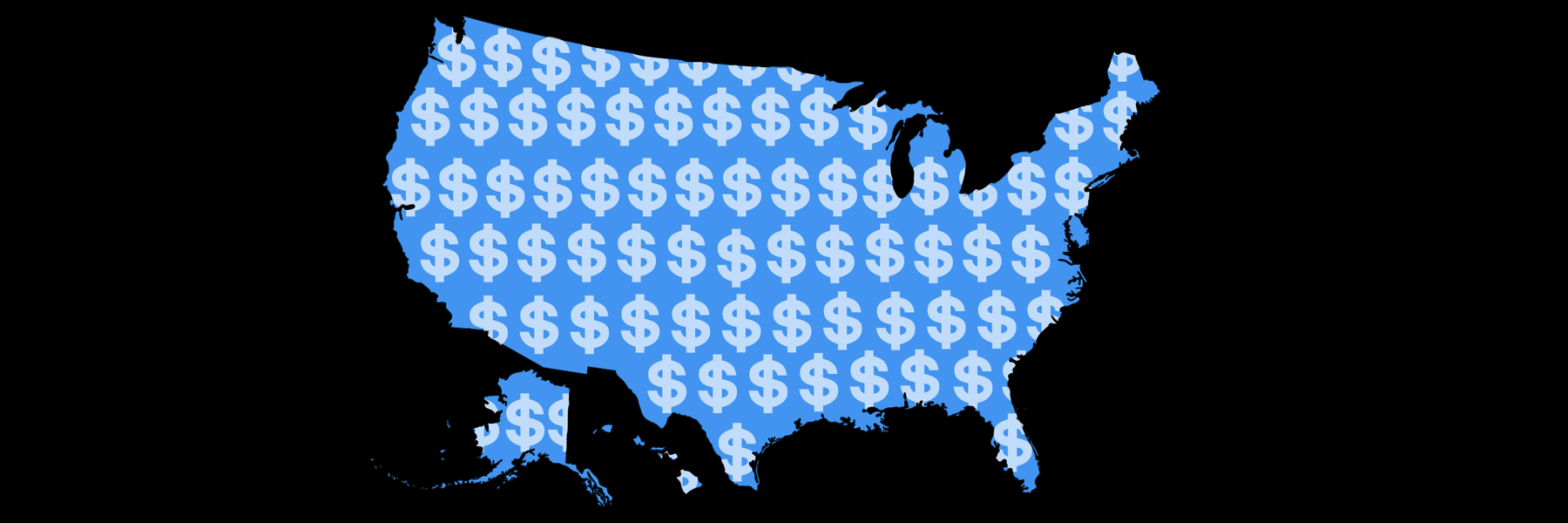There are a lot of factors when it comes to determining your FOIA request cost, but one of the key ones is which requester category you fall under. Under FOIA fee regulations, there are three broad categories of requesters, and making sure you are classified correctly can mean getting the documents for free or a reasonable fee and being asked to pay thousands - or even hundreds of thousands - of dollars.
FOIA fee categories are different than FOIA fee waivers
The first thing to know is that there’s a difference between your fee category and FOIA fee waivers. This is something we see a lot of requesters get tripped up on.
A FOIA fee waiver is when you ask an agency to waive all fees because your request is in the public interest. There’s a six-point test that agencies apply, and your letter must show that you meet all of its requirements:
- The subject of the requested records concerns government operations and activities
- The disclosure is likely to contribute to understanding of these operations or activities
- Disclosure will likely result in public understanding of the subject
- The contribution to public understanding of government operations or activities will be significant
- The requester has a limited commercial interest in the disclosure
- The public interest in disclosure is greater than the requester’s commercial interest
You can read the Department of Justice’s guide to fee waivers here, but generally speaking we’ve found that six-point test can be a hard hurdle to pass with many agencies, and if you are a media requester it’s generally simpler to just make sure you’re properly classified, with the end result often being the same: No fees.
What are the FOIA fee categories?
There are three fee categories under the federal FOIA:
1) Commercial use requesters. These requesters pay search, review, and duplication fees. 2) Educational institutions, noncommercial scientific institutions, and representatives of the news media, which pay only duplication fees after the first 100 pages, which are free. 3) All other requesters, which pay for search and duplication fees after the first 100 pages and after the first two hours of search time, which are free.
Commercial requesters are defined as “a use or purpose that furthers the commercial, trade, or profit interests of the requester or the person on whose behalf the request is being made.” Unless you’re truly requesting documents to advance business interests, you want to avoid getting put in this category at all costs.
Educational and scientific institution requesters are those that file requests on behalf of their scientific or educational work. It’s not enough to just be a student or scientist, but you need to be able to credibly show how the request pertains to your duties in that field, such as a climate researcher requesting climate data, or an undergraduate doing research for a long-term project on the Cold War.
And finally we get to media requesters, which might be the most complicated category as the definition of what news is - and who counts as a journalist - continues to expand.
Who is a journalist under FOIA?
The Department of Justice has a broad guide to who is considered a news media requester under FOIA , and the definition explicitly includes a broad amount of flexibility:
This subcategory includes “any person or entity that gathers information of potential interest to a segment of the public, uses its editorial skills to turn the raw materials into a distinct work, and distributes that work to an audience.” Additionally, Congress incorporated into the statutory definition the OMB Fee Guidelines’ definition of “news” as “information that is about current events or that would be of current interest to the public.” The statutory definition also addresses the potential growth of alternative news media entities by providing a non-exclusive list of media entities. Finally, the statutory definition specifies that freelance journalists shall be considered representatives of the news media if they “can demonstrate a solid basis for expecting publication through [a news media] entity, whether or not the journalist is actually employed by the entity.” The OMB Fee Guidelines provide that a request from a representative of the news media that supports a news-dissemination function “shall not be considered to be a request that is for a commercial use.”
That definition includes traditional newspaper and broadcast journalists, bloggers, and, thanks to important court cases, book authors.
Part of the criteria is based on how the requester plans to use the information, and how it can get the information out to the public.
45 CFR 1602.2 provides the pertinent definition:
Representative of the news media means any person or entity that gathers information of potential interest to a segment of the public, uses its editorial skills to turn the raw materials into a distinct work, and distributes that work to an audience. In this clause, the term “news” means information that is about current events or that would be of current interest to the public. Examples of news media entities are television or radio stations broadcasting to the public at large and publishers of periodicals (but only if such entities qualify as disseminators of “news”) who make their products available for purchase or subscription or by free distribution to the general public. These examples are not all-inclusive. Moreover, as methods of news delivery evolve (for example, the adoption of the electronic dissemination of newspapers through telecommunications services), such alternative media shall be considered to be news media entities. A freelance journalist shall be regarded as working for a news media entity if the journalist can demonstrate a solid basis for expecting publication through that entity, whether or not the journalist is actually employed by the entity. A publication contract would present a solid basis for such an expectation. LSC may also consider the past publication record of the requester in making such a determination.
Two important elements to keep in mind:
- Under FOIA, you’re only considered a journalist if you use “editorial skills to turn the raw materials into a distinct work,” so just posting the resulting documents won’t qualify.
- Your work must be distributed to an audience, and this generally requires some active distribution, such as through a newsletter or some form of regular output.
When you’re crafting your initial request and justifying your categorization as a media requester, it’s important to keep those criteria in mind. Broader arguments about the First Amendment or the public’s right to know are less effective than sticking to clear examples about how you qualify and why the information you’re asking for qualifies under FOIA fees regulations.
How do you prove you’re a journalist?
We’ve seen FOIA offices do goofy things when they feel they don’t have enough information to make a determination about your fee category, so it’s best to provide them all the information they need, as clearly as you can.
If you’re a staff writer at a publication, clearly state that and include some links to your prior reporting, particularly if it’s related to the domain you’re requesting about.
We find that a sentence explicitly stating that you plan to analyze released documents using your editorial skill for a news article often helps. If you’re at a smaller or non-traditional publication, it can also help to show that you have an audience, whether that’s listing the number of subscribers in a newsletter or on Facebook or pointing to other places that have cited your work.
FOIA news media sample request language
To help get you started, here’s some sample language that you can put in your request, after the main part where you set out what you’d like from the agency:
I request that I be properly classified as a news media requester. I am an [insert or explain position here] for [publication name], and I am requesting this information in that editorial capacity.
[Publication name] is widely recognized for its reporting, publishing regular features on issues of public interest and importance, such as the below examples:
- [Insert appropriate link]
- [Insert appropriate link]
In addition, I have covered areas related to this request, and plan to use my editorial skills to analyze and produce original reporting work for my audience of [number of monthly or annual readers] at [publication name]. Some samples of my prior reporting work are available here:
- [Insert appropriate link]
- [Insert appropriate link]
If you have any questions about my media status, please contact me.
I sometimes explicitly state that I am not asking for a fee waiver, as this often complicates or confuses the issue, although a fee waiver is very helpful if you expect several hundred or thousands of pages.
FOIA news media sample appeal language
Occasionally, particularly if you work for a less traditional newsroom, agencies will place you in the wrong fee category. It’s important to pay close attention to why they did that, and make sure that they didn’t just reject a request for a fee waiver. Sometimes agencies don’t address fee categories at all in the initial response.
Here’s a sample appeal that you can use as the basis for changing that determination. We’ll continue to update it and improve it on this page over time, so if you have suggestions please let us know.
To Whom It May Concern:
This is an appeal of fee status for [request ID] (attached, along with all correspondence). Specifically, I am appealing this agency’s determination that I am a “commercial requester,” rather than a journalist entitled to media requester status under a plain reading of the FOIA statute.
The FOIA statute directs that fees shall be limited “to reasonable standard charges for document duplication when records are not sought for commercial use and the request is made by […] a representative of the news media.”
The 2007 FOIA amendments further define the news media category to include:
“any person or entity that gathers information of potential interest to a segment of the public, uses its editorial skills to turn the raw materials into a distinct work, and distributes that work to an audience. [....] the Government may also consider the past publication record of the requester in making such a determination.”
I meet the definition of a media requester. I am the [insert editorial position], which publishes original news content on a regular basis. Below are a number articles I have written for my publication:
- [Insert appropriate link]
- [Insert appropriate link]
In addition to my capacity as [position], I have also reported for and been published in such online and print outlets as [List prior publication history]. Here are clips of previous articles that I have written for some of these publications:
- [Insert appropriate link]
- [Insert appropriate link]
My coverage of topics from [Insert Topics] has been cited by a host of other news outlets at the international, national and local levels.
In short, it could not be clearer that I am, in fact, a journalist.
My reporting will be available to the wide audience of [insert details about audience], which can access the information via [dissemination channels]. For my part, I will derive only journalistic benefit from the requested documents.
I urge you to reconsider my category status and to apply the clear standard of the FOIA statute and its fee provisions to all requesters. Individuals with no commercial interest in requested documents should not be subject to commercial requester fees under any circumstances, and journalists should be recognized as such.
I thank you for your prompt attention, and I look forward to your response.
Best regards,
Image via the Center for Jewish History’s Flickr




